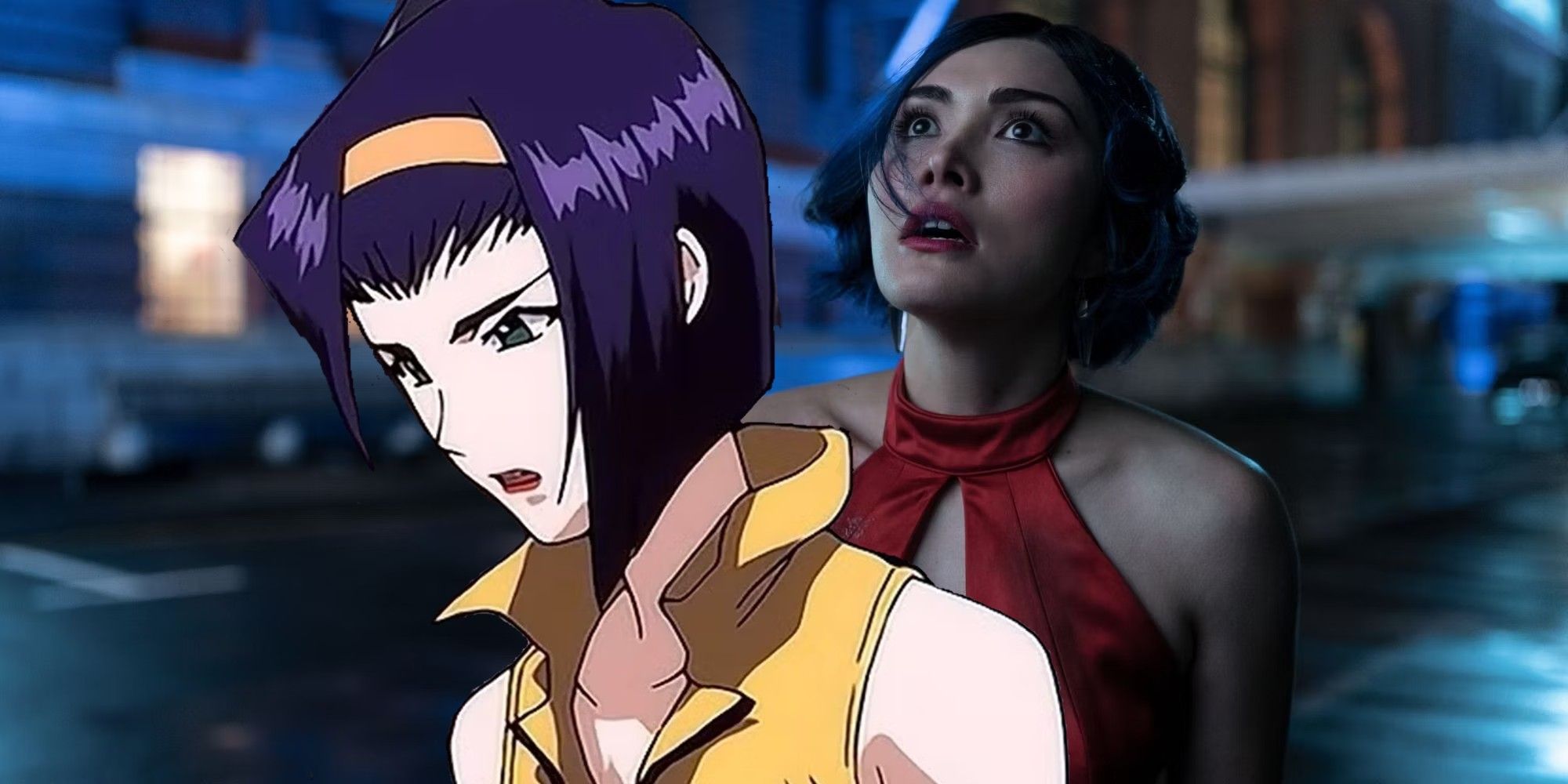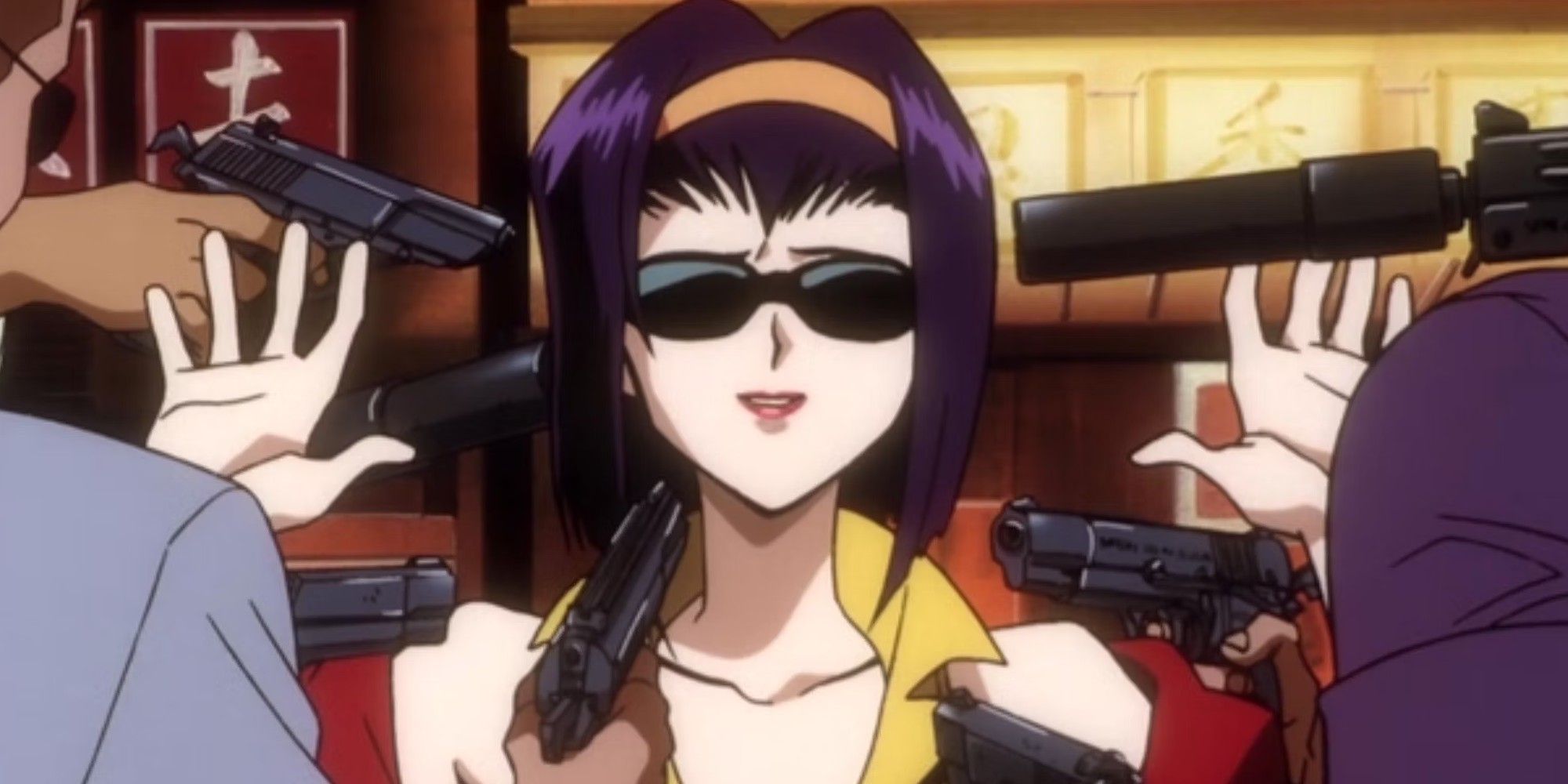Fans were shocked by Netflix's sudden cancelation of its live-action adaptation of the cult-classic anime Cowboy Bebop less than a month after its premiere, but considering the live-action show's "kinder, gentler" portrayal of the characters such as Faye Valentine, the show's failure, for fans of the anime, was not surprising.
In both the anime and the live-action show, Faye Valentine plays the third "cowboy" or bounty hunter on the Bebop with a skillset, and level of experience in the profession as impressive as Spike and Jett. In the anime, their first meeting ends with Faye making off with the cash reward Spike and Jet earned for a takedown. However, their paths cross again when the Bebop comes across Faye's out-of-gas ship in pursuit of eco-terrorists. They detain her, but she escapes when their attention is drawn back to dealing with the eco-terrorists. However, rather than run away, she voluntarily returns to help Spike stop a missile launched by the terrorists. In the Netflix version, Spike detains Faye in their first meeting after she tries to arrest Spike's contact, the lover of a mark he's after. She escapes while Spike and Jet deal with the mark, but rather than run away, she follows them to complete her mission of arresting the lover, and in the process saves Jet. The second time they meet It's to ask for their help to take down eco-terrorist. She prefaces the job as a way they can all make money, but the reality is she's after a device they stole.
While the differences between the portrayals seem minor, they go to the very heart of why the Netflix Cowboy Bebop show just did not feel right, to many of the anime's fans, the key audience needed to be convinced of the show's worth if it were ever to have a chance to be successful. The key element is not that they changed the story, but rather the persona of one of the critical characters of the show. In the anime, Faye might be self-absorbed and manipulative, but she's also a highly talented bounty hunter who respects the profession and the other professionals in the business. She saves Spike not because she has a good heart, but because she tried to help a fellow cowboy in need.
Why the Netflix Adaptation Failed
In the Netflix show, Faye is just as self-absorbed, manipulative, and talented as in the anime version, but she has none of her professional responsibility. She is completely in it for herself. The only reason she was around to save Jet was because she wanted to arrest her lover. While this is not necessarily a characteristic that is bad for a bounty hunter, it completely destroys the dynamic of the relationship between Spike, Jet, and herself in the anime that was essential to the story. Rather than Faye being a professional who's willing to forego a degree of personal interest for the greater good; there's Faye endlessly conniving for a score that puts her in a better position than others. The anime Faye connects with fans in a way that the Netflix version didn't.
With its dedicated and vocal fanbase built over decades since its debut in 1998, a cache of solid and proven content to draw on, and a growing interest in anime, it seemed like Netflix's Cowboy Bebop was destined for success. The show had all the elements that generally guarantee an adaptation is well-loved. Despite the advantages, the show made a handful of critical errors that prevented it from connecting with fans and new viewers alike. The problem was that the adaptation misread what made Cowboy Bebop so special, as demonstrated through its depiction of Faye Valentine.


